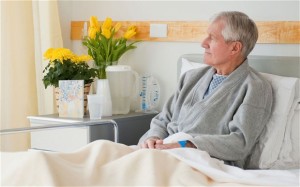Controlling cancer pain effectively

Controlling cancer pain effectively can be very challenging, however, with our holistic cancer treatment strategies, all you need is to call us and you will be well
Controlling cancer pain effectively: Bone metastasis
Cancer pain is one element that keeps many patients worried of the next minute. If you have been to that place you understand what I am alluding to. The problem is even complicated if the cancer has spread to the bones. Whether it right at the place where the cancer has metastasized or in areas surrounding it, the level of pain may be worse at night and when you rest or it may be better when you rest and worsen when you are moving. This level of pain is what is triggering the discussion about the management of cancer pain from bone metastasis in this article. Pain is actually the single common denominator with all cancer patients irrespective of how it (pain) behaves. It is estimated that about 70% of all cancer patients with metastases (“mets”) have pain on the bone. Pain can be frightening more so when in your mindset you think that you can’t do anything about it. This is a very wrong opinion because there is always something you can do about pain caused by bone metastasis. In fact there’s a lot we can do to reduce the pain, doctor Akoury says. And for sure there’s no reason why any cancer patient should live with excessive pain. That is why experts from AWAREmed Health and Wellness Resource Center have developed this guide to help you get started and defeat cancer pain from your life. AWAREmed Health and Wellness Resource Center is a health facility founded by doctor Dalal Akoury to help people get medical assistance and if you or any of your loved ones is struggling with this problem then you can schedule for an appointment with her today and get the insight of dealing with pain.
Controlling cancer pain effectively: Tracking bone metastasis pain
It is always said that our people suffer because of lack of knowledge. Doctor Dalal Akoury is making effort to fill the gap by impacting health information that stand out in helping the society prevent all preventable conditions. She says that metastatic cancer cells damage bones and cause pain several ways some of which include:
- They produce substances that can dissolve and weaken bones. This may cause a bone to break, which is painful.
- As the tumor grows in the bone, nerve endings in and around the bone also send pain signals to the brain.
- They may make bones harden. This is called sclerosis.
Because most of the cancer pains are as a result of metastasis, many people often think that all pains are caused by metastasis. This may not be the case because other pains like one suffering from a severe shoulder pain could not necessarily come from metastasis but even from a frozen shoulder or tendonitis, she says. Therefore what will inform you if this is actually a cancer pain? One difference is that cancer pain persists while other types of pain are more likely to come and go. But better still, even though this is an indicator, it’s still very important to get any new or changing pain checked out in good time.
If you have persistent bony pain for example, bring it to the attention of your oncologist. It is better that you keep your doctor busy even with very obvious things than to suspect something and assume it. Making an assumption is a very poor way of seeking for help. Therefore I want to encourage you to call with any questions, our team of experts at AWAREmed Health and Wellness Resource Center will be there to help you solve the situation in good time.
Controlling cancer pain effectively: Bone metastasis
http://www.integrativeaddictionconference.com/wp-admin





